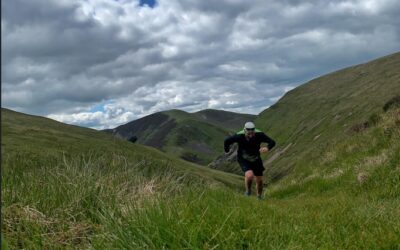The Galilee Foundation is proud of its student family. We are pleased to share with our own and other students interested in the programme, as well as our supporters, a chance to hear from some of our scholarship students their feelings about the programme – the importance of its financial support, as well as the workshops, lectures, and mentoring and volunteering components.
Please meet Emad Khoury, a second-year medical student, studying at the Technion in Haifa in his second year in the scholarship programme.
How important is the financial support of the scholarship programme to you?
Without the scholarship, it would be very difficult for me to continue studying medicine. My father is retired and I already need to work part-time to offset some of the expenses. If I didn’t get the scholarship I’d need to work extra hours and, with the demands of the medicine programme, I don’t think I’d be able to make it. It’s a very demanding programme and requires a lot of time. Haifa is an expensive city and the scholarship helps me to pay my accommodation and tuition costs.
As part of the scholarship programme, the Galilee Foundation has organised a mentoring system, in which our scholarship students in their second and third years of study are assigned one of our first year students, whom they volunteer to mentor. Describe the impact of the mentoring programme.
For us Palestinian students, the mentoring programme is very important because going to university in cities like Haifa, we face many new experiences that we’re not familiar with. I come from Abu Snan, a Palestinian village near Akka, so I was nervous about moving from a familiar place and routine to somewhere new, big and somewhat hostile. Having someone older to tell us what we have to do and how we can prepare for the new environment is very important and valuable. Sometimes I needed someone to help me to adapt to the demands of the course– like time management – so that I could achieve my best, and my mentor helped me in this and other ways. I’m looking forward to being able to help a new student this year for the same reasons.
Tell us about the other activities – workshops, lectures and trips – that are organised as part of the scholarship programme.
For me, the cultural activities are the most important part of the scholarship programme because we are a minority in this country and we don’t have the institutions in society that teach and inform us about our culture and identity. We see our history and culture sidelined by the state educational curriculum.
This programme shows us about our history and our culture, and reinforces these. It gives us a space to discuss these issues among ourselves, so we hear other people’s experiences and thoughts, and this is very valuable – it helps each participant think about how he or she handles their identity as a Palestinian, and as a Palestinian living in Israel.
Last year as part of the reading workshop we read Suhail Matar’s book of short stories called North of Andalusia, West of Homeland, and the author came to discuss it with us. Workshops like this one showed how we have to understand how people think around us because we can’t improve ourselves if we’re closed off from others. We need to be open-minded to see things differently, how things can be different from what we’re used to. This workshop gave us that chance to develop and grow as individuals.
I would like to see more of these workshops each year. This programme makes us proud of being Palestinians because we have gone through a lot of things that other people haven’t had to face, and we need to reinforce our identity and be proud of our sumud [steadfastness].
Would you encourage other students from the Palestinian minority in Israel to apply to the GF scholarship programme?
I would, definitely, in every way. The programme makes us more mature and rounded. In addition, we couldn’t afford to go to university without the support.
Read ‘Meet our student, Bushra Dahmoush’ here.






